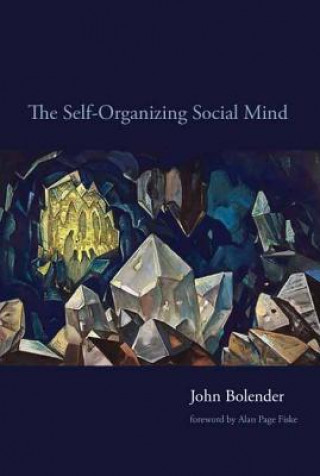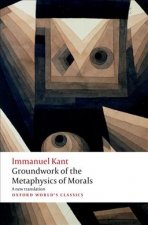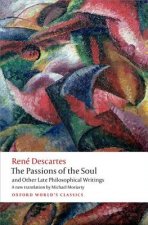
Kód: 04560277
Self-Organizing Social Mind
Autor John Bolender
In The Self-Organizing Social Mind, John Bolender proposes a new explanation for the forms of social relations. He argues that the core of social-relational cognition exhibits beauty -- in the physicist's sense of the word, associ ... celý popis
- Jazyk:
 Angličtina
Angličtina - Vazba: Pevná
- Počet stran: 208
Nakladatelství: MIT Press Ltd, 2010
- Více informací o knize

351 Kč
Dostupnost:
50 % šance Máme informaci, že by titul mohl být dostupný. Na základě vaší objednávky se ho pokusíme do 6 týdnů zajistit.
Máme informaci, že by titul mohl být dostupný. Na základě vaší objednávky se ho pokusíme do 6 týdnů zajistit.Prohledáme celý svět
Mohlo by se vám také líbit
-

Midas
415 Kč -

Marie Curie
438 Kč -

At Home on the Range
524 Kč -

Maps of Englishness
3962 Kč -

Innovations in International and Cross-Cultural Management
3935 Kč -

Short Story Criticism, Volume 155
13464 Kč -

Building Skills for Black Workers
3211 Kč
Darujte tuto knihu ještě dnes
- Objednejte knihu a zvolte Zaslat jako dárek.
- Obratem obdržíte darovací poukaz na knihu, který můžete ihned předat obdarovanému.
- Knihu zašleme na adresu obdarovaného, o nic se nestaráte.
Informovat o naskladnění knihy
Zadejte do formuláře e-mailovou adresu a jakmile knihu naskladníme, zašleme vám o tom zprávu. Pohlídáme vše za vás.
Více informací o knize Self-Organizing Social Mind
Nákupem získáte 35 bodů
 Anotace knihy
Anotace knihy
In The Self-Organizing Social Mind, John Bolender proposes a new explanation for the forms of social relations. He argues that the core of social-relational cognition exhibits beauty -- in the physicist's sense of the word, associated with symmetry. Bolender describes a fundamental set of patterns in interpersonal cognition, which account for the resulting structures of social life in terms of their symmetries and the breaking of those symmetries. He further describes the symmetries of the four fundamental social relations as ordered in a nested series akin to what one finds in the formation of a snowflake or spiral galaxy. Symmetry breaking organizes the neural activity generating the cognitive models that structure our social relationships. Bolender's primary claim is that there exists a social pattern generator analogous to the central pattern generators associated with locomotion in many animal species. Spontaneous symmetry breaking structures the activity of the social pattern generator just as it does in central pattern generators. Bolender's hypothesis that relational cognition results from self-organization is entirely novel, distinct from other theories that describe sociality in terms of evolution or environment. It presents a picture of social-relational cognition as resembling something inorganic. In doing so it reveals deep connections among cognition, biology, and the inorganic world. One can go too far, he acknowledges, in taking a solely dynamical view of the mind; the mind's innate functional complexity must be due to natural selection. But this does not mean that every simple mental feature is the result of natural selection. By noting a descending symmetry subgroup chain at the core of relational cognition, Bolender takes the first step in an important investigation.
 Parametry knihy
Parametry knihy
Zařazení knihy Knihy v angličtině Humanities Philosophy History of Western philosophy
351 Kč
- Plný název: Self-Organizing Social Mind
- Autor: John Bolender
- Jazyk:
 Angličtina
Angličtina - Vazba: Pevná
- Počet stran: 208
- EAN: 9780262014441
- ISBN: 0262014440
- ID: 04560277
- Nakladatelství: MIT Press Ltd
- Hmotnost: 466 g
- Rozměry: 232 × 162 × 19 mm
- Datum vydání: 13. August 2010
Oblíbené z jiného soudku
-

Meditations
245 Kč -

The Myth of Sisyphus
169 Kč -

Why I Am so Clever
91 Kč -

Meditations
410 Kč -

Republic
279 Kč -

Beyond Good and Evil
258 Kč -

Gay Science
316 Kč -

Aphorisms on Love and Hate
90 Kč -

Beyond Good & Evil
322 Kč -

Meditations on First Philosophy
253 Kč -

Intellectual Life
454 Kč -

Socrates' Defence
90 Kč -

Discourses, Fragments, Handbook
306 Kč -

Ride the Tiger
493 Kč -

Thus Spoke Zarathustra
276 Kč -

Fear and Trembling
276 Kč -

Birth of Tragedy
90 Kč -

Early Greek Philosophy
357 Kč -

Groundwork for the Metaphysics of Morals
286 Kč -

Gorgias
232 Kč -

Brief History of Analytic Philosophy - From Russell to Rawls
955 Kč -

On Duties
322 Kč -

Discourses and Selected Writings
306 Kč -

Nicomachean Ethics
136 Kč -

Nausea
276 Kč -

Letters from a Stoic
276 Kč -

Meditations
502 Kč -

Simulacra and Simulation
416 Kč -

Phenomenology of Spirit
551 Kč -

Twilight of the Idols with The Antichrist and Ecce Homo
136 Kč -

On Liberty, Utilitarianism and Other Essays
250 Kč -

On the Suffering of the World
196 Kč -

Human Condition
511 Kč -

On the Shortness of Life
223 Kč -

Existentialism Is a Humanism
213 Kč -

Think
324 Kč -

Guide to the Good Life
434 Kč -

How To Be A Stoic
431 Kč -

The Symposium
233 Kč -

Human, All Too Human & Beyond Good and Evil
131 Kč -

At The Existentialist Cafe
358 Kč -

Undiscovered Self
708 Kč -

Passions of the Soul and Other Late Philosophical Writings
303 Kč -

The Trouble With Being Born
306 Kč -

Leviathan
136 Kč -

City of God
454 Kč -

Ecce Homo
302 Kč -

Enneads
381 Kč -

On Friendship
202 Kč
Osobní odběr Praha, Brno a 12903 dalších
Copyright ©2008-24 nejlevnejsi-knihy.cz Všechna práva vyhrazenaSoukromíCookies


 Vrácení do měsíce
Vrácení do měsíce 571 999 099 (8-15.30h)
571 999 099 (8-15.30h)